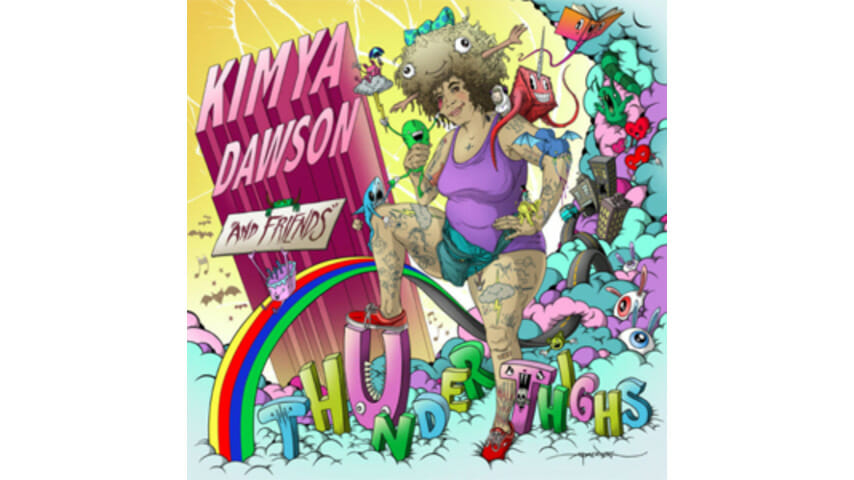Kimya Dawson: Thunder Thighs

Because she’s so earnest and goofy, and sure, willing to embarrass herself on record, Kimya Dawson ranges from underrated to grossly misconstrued, by contemporary indie critics who claim to have outgrown twee. But her screeching antifolk realism that’s feminist by default is essential in a world where Animal Collective’s bro-y musings are considered concrete. Dawson’s 2002 effort I’m Sorry That Sometimes I’m Mean is the greatest record her post-Nuyorican culture’s ever seen, even overshadowing the Moldy Peaches’ sole collaboration because it’s more poignant to match up with the funny, meaning for every talking blues about a pull-string Jim Varney doll there was an ice-cold tragedy about an abusive social worker.
-

-

-

-

-

-

-

-

-

-

-

-

-

-

-

-

-

-

-

-

-

-

-

-

-

-

-

-

-

-

-

-

-

-

-

-

-

-

-

-








































